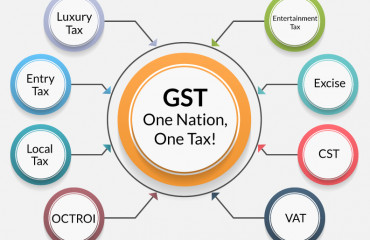
The Goods and Services Tax (GST) Council on Tuesday decided to correct several tax rates and withdraw some tax exemptions. A move that is being speculated as shifting towards a higher GST regime to earn more revenue in the high inflation era is expected to hit demand. Recommendations on tax rationalisation made by three ministerial committees on gold and precious stones were adopted without any change, three Council members told Mint on condition of anonymity.
The Goods and Services Tax (GST) Council on Tuesday decided to correct several tax rates and withdraw some tax exemptions. A move that is being speculated as shifting towards a higher GST regime to earn more revenue in the high inflation era is expected to hit demand. Recommendations on tax rationalisation made by three ministerial committees on gold and precious stones were adopted without any change, three Council members told Mint on condition of anonymity.
Today, the second and final day of its meeting, the Council will look into the demand from states, including Kerala and Delhi, to extend GST compensation beyond June and the proposal to levy a uniform 28% tax rate on online gaming, horse racing and casinos
GST effect: What will become cheaper or costlier?
- Pre-packed and labelled food items (except frozen) like meat, fish, curd, paneer and honey will now attract a 5 % GST.
- Unbranded items such as flour and rice will attract a 5% GST if they are pre-packaged and labelled. Currently, only branded versions of these items attract 5% GST.
- GST will also be levied on the fee that banks charge for the issue of cheques.
- Dried leguminous vegetables, dried makhana, wheat and other cereals, wheat or meslin flour, jaggery, puffed rice (muri), all goods and organic manure and coir pith compost will now attract a 5 per cent tax.
- GST rate will be hiked from 12% to 18% on items like printing, writing and drawing ink, certain knives, spoons and tableware, dairy machinery, LED lamps and drawing instruments.
- A rate increase from 5% to 12% is expected for solar water heaters and finished leather.
- Goods that are unpacked, unlabelled and unbranded will continue to remain exempt from GST.
- A 12 per cent tax on hotel rooms below ₹1,000/day will be levied, as against a tax exemption currently.
The GST Council also recommended a correction in the inverted duty structure for a host of items, including edible oil, coal, LED lamps, printing/drawing ink, finished leather and solar water heater.
The Council is likely to discuss on Wednesday the demand for an extension of compensation paid to states for revenue lost from their taxes such as sales tax (VAT) being subsumed into a national GST, besides a 28 per cent tax on casinos, online gaming and horse racing.
